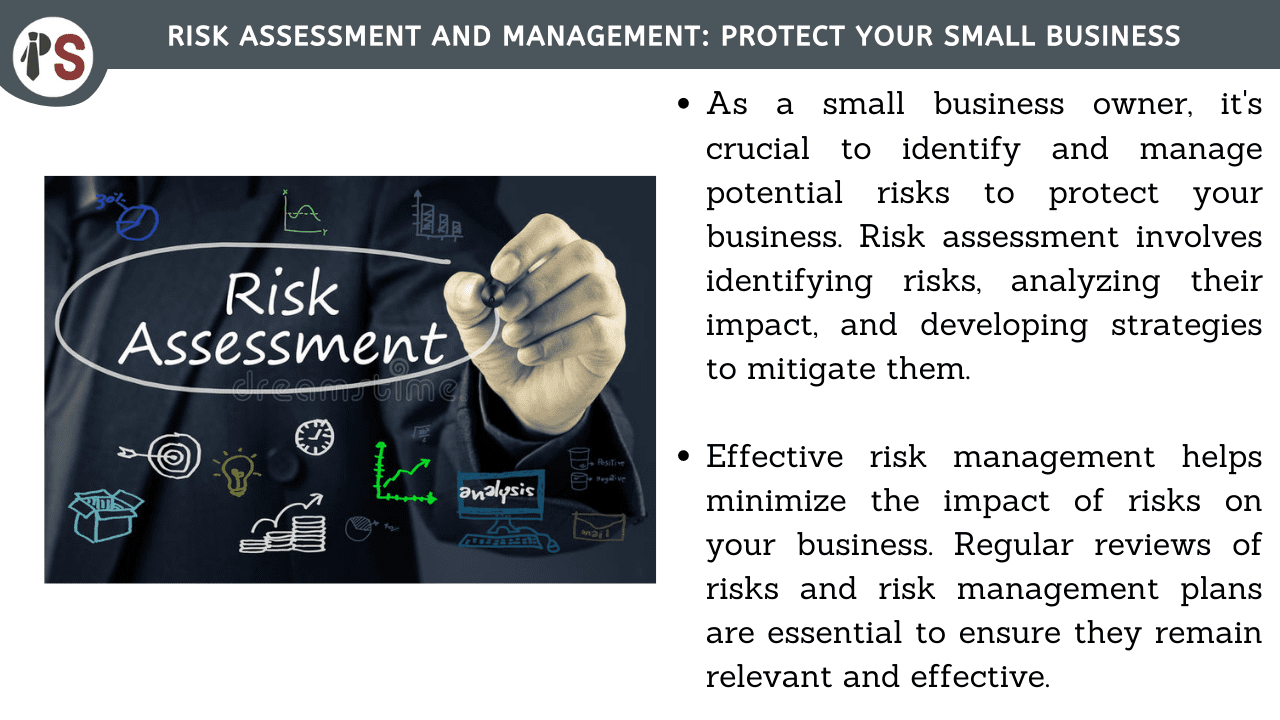
Running a small business is a risky venture, but effective risk management can help you avoid or mitigate potential issues that may arise. Risk assessment is a process of identifying and analyzing potential risks, while risk management is the process of developing strategies to minimize, monitor, and control those risks. Here are some tips for small business owners to effectively manage risks and improve their chances of success.
Identify potential risks: The first step in risk assessment is to identify potential risks that could impact your business. These can include financial, operational, strategic, or compliance risks. Consider the impact and likelihood of each risk and prioritize them accordingly.
Assess the impact: Once you have identified potential risks, assess the potential impact on your business. Determine the worst-case scenario and estimate the financial, reputational, and operational impact. This will help you prioritize the risks that require immediate attention.
Develop a risk management plan: Based on the identified risks and their potential impact, develop a risk management plan. The plan should include strategies to mitigate, monitor, and control the risks. Consider insurance, contingency planning, and regular monitoring and reporting.
Involve your team: Effective risk management involves your entire team. Encourage open communication and involve your employees in identifying and managing risks. Provide regular training and support to ensure that your team understands the importance of risk management.
Regularly review and update your risk management plan: Risks can change over time, so it's important to regularly review and update your risk management plan. Ensure that your plan remains relevant and effective by assessing new risks and identifying areas for improvement.
Seek professional advice: If you're unsure about how to assess and manage risks, seek professional advice from a risk management expert or consultant. They can help you identify potential risks, assess their impact, and develop effective risk management strategies.
Effective risk assessment and management can help you minimize potential issues and improve the overall success of your small business. By identifying potential risks, assessing their impact, and developing effective risk management strategies, you can minimize the impact of potential risks and increase your chances of success.
Summary:
Risk assessment and management is an essential part of running a successful small business. By identifying potential risks, assessing their impact, and developing effective risk management strategies, you can minimize the impact of potential risks and increase your chances of success. Key tips include involving your team, regularly reviewing and updating your risk management plan, and seeking professional advice when necessary
At Professional Saathi, we offer a range of business consultancy services that help businesses improve their performance, achieve growth, and overcome challenges.
Copyright 2026 © Created By KTPG PROFESSIONAL SAATHI CORPORATE CONSULTANT PRIVATE LIMITED, All Rights Reserved.
Leave Your Comment